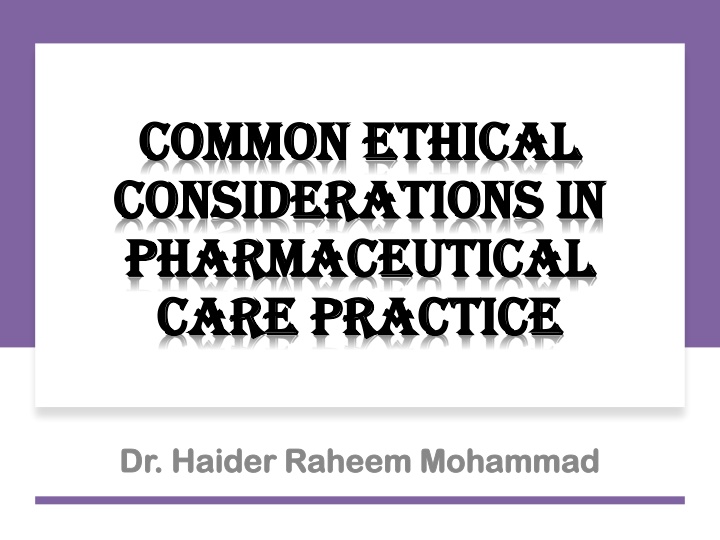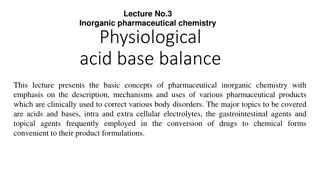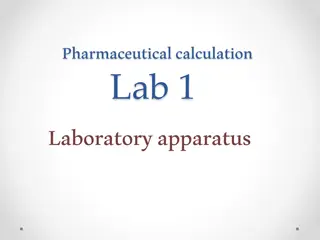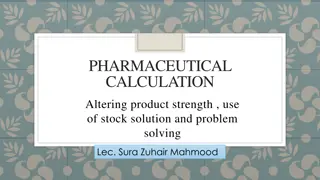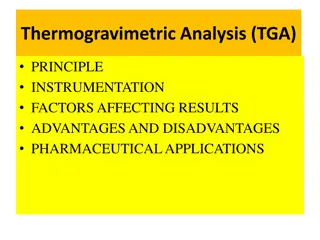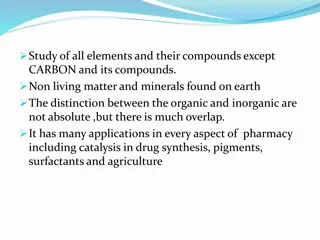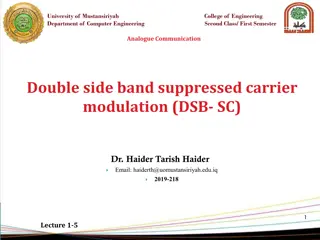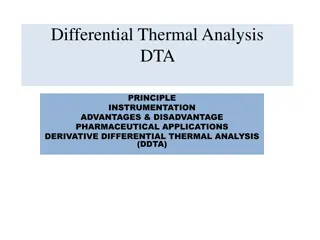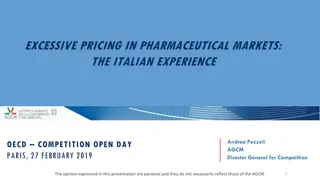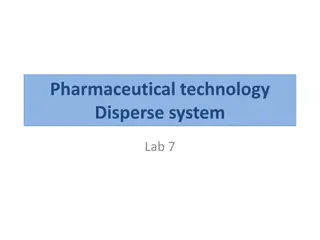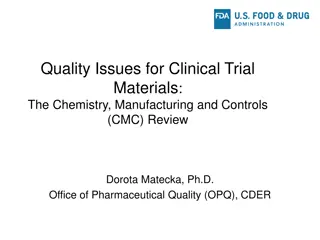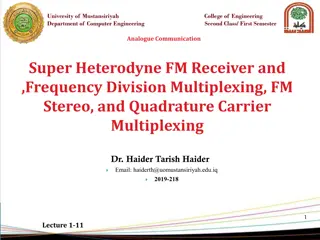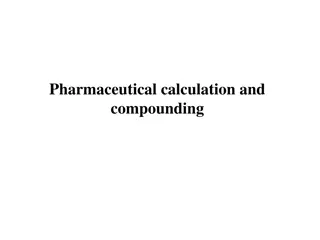Ethical Considerations in Pharmaceutical Care Practice by Dr. Haider Raheem Mohammad
Benefiting the patient and others while balancing ethical principles, such as the duty to do good and avoid harm, presents challenges in pharmaceutical care practice. Issues can arise when protecting the patient conflicts with societal interests or when allocating resources fairly. Understanding and navigating these ethical dilemmas are crucial in providing optimal care.
Download Presentation

Please find below an Image/Link to download the presentation.
The content on the website is provided AS IS for your information and personal use only. It may not be sold, licensed, or shared on other websites without obtaining consent from the author.If you encounter any issues during the download, it is possible that the publisher has removed the file from their server.
You are allowed to download the files provided on this website for personal or commercial use, subject to the condition that they are used lawfully. All files are the property of their respective owners.
The content on the website is provided AS IS for your information and personal use only. It may not be sold, licensed, or shared on other websites without obtaining consent from the author.
E N D
Presentation Transcript
Common Ethical Common Ethical Considerations in Considerations in Pharmaceutical Pharmaceutical Care Practice Care Practice Dr. Haider Raheem Mohammad Dr. Haider Raheem Mohammad
Benefiting the Patient and Others The Duty to Do Good and Avoid Harm The idea that it is ethically right to do good, especially good for the patient, is one of the most obvious in health care ethics. The Hippocratic Oath has the physician pledge to benefit the patient according to [the physician s] ability and judgment. The 1994 APhA Code of Ethics says that A pharmacist promotes the good of every patient in a caring, compassionate, and confidential manner. These are all versions of the principle of doing good for the patient. While this seems so obvious as to be platitudinous, in fact, many serious moral problems arise over the interpretation of this principle. First, even if it is agreed that the benefits and harms that ought to be the focus of the pharmacist s concern are the patient s, there is still considerable room for controversy.
Benefiting the Patient and Others For example, what if protecting the patient will come at considerable risk of harm to society in general or to specific identifiable people who are not patients? What if the interests of the profession of pharmacy conflict with those of the patient? Or what if doing what is necessary to help the patient conflicts with the interests of the pharmacist s family? Is it obvious that the pharmacist should always place the patient s interest above those of his or her family? Pharmacists often find themselves in situations in which the interests of their patients are in conflict. The pharmacist must choose between patients or between a patient and those who are not patients. Whether to provide medications for those who cannot pay the full costs and shift the costs onto those who can is one example.
Justice The Allocation of Health Resources Some ethical theories introduce a new ethical principle to deal with this -problem- the principle of justice. While beneficence and nonmaleficence are devoted, respectively, simply to producing as much good and preventing as much harm as possible, justice is concerned with how the goods and harms are distributed. Justice is concerned with the equity or fairness of the patterns of the benefits and harms.
Justice The problems of allocating scarce resources arise in pharmacy in planning health care system formularies and in the operation of drug distribution systems. The principle of justice affirms that certain patterns of distribution of the good, such as distribution based on medical need, also may be morally relevant. Justice as distribution is not the only moral consideration that can provide a check on the principles of beneficence and nonmaleficence. Justice is concerned with the distribution of goods in morally preferred patterns. It, therefore, always involves more than one potential beneficiary.
Autonomy Autonomy Psychologically, autonomy is a term describing the mental state of persons who are free to choose their own life plans and act on those plans substantially independent of internal or external constraints. One leads the life of an autonomous person to the extent one is free to be self-legislating. Autonomy means creating one s own legislation. is both a psychological and a moral term. As such it should be apparent that being autonomous is always a matter of degree. No one is fully autonomous in the sense of being totally free from internal and external constraints. Some people may be totally lacking in autonomy infants and the comatose, are examples. Many nonautonomous, however, possess some limited capacity to make their own choices. people whom we call
Autonomy Small children, the mentally retarded, the mentally ill, and the senile all may be able to make limited choices based on their own beliefs and values and yet are hardly autonomous enough to be called self- determining in any meaningful way. Thus, being an autonomous person is a matter of degree. Those persons who have a sufficient degree of autonomy we treat as being essentially self- determining; autonomous persons. we call them substantially For purposes of public policy, we assume that persons below the age of majority, usually 18, unless proven otherwise, are lacking sufficient autonomy for a range of publicly significant decisions.
Autonomy Of course, if the patient is unconscious, no such action is necessary. But, if the patient is capable of disagreement and coherently expresses that disagreement, then the patient should be presumed to be competent until adjudicated otherwise. If he or she fails to disagree, then a presumption of lack of capacity to make substantially autonomous choices seems reasonable. This does not mean, however, that a health professional is automatically free to do what seems reasonable to those who are not substantially autonomous.
Autonomy In the case of children, we presume that only parents and those so designated by the courts are free to act as surrogate decision makers. In the case of adults, even if the presumption of lack of autonomy is warranted, it is still necessary to determine who is authorized to speak for the individual. The health professional pharmacist, physician, or other health worker does not automatically have that authority. And even if one is believed to be substantially autonomous, it does not necessarily follow that he or she should be free to make all decisions about his or her actions. The moral principle of autonomy says that patients have a right to be self-determining insofar as their actions affect only themselves.
Veracity Dealing Honestly with Patients Traditional ethics holds that it is simply wrong morally to lie to people, even if it is expedient to do so, even if a better outcome will come from the lie. The Hippocratic Oath does not require that physicians deal honestly with patients. Many professional medical ethicists have, in fact, maintained that it is right for a physician to lie to a patient when doing so will spare the patient agony. By contrast, The 1969 version of the APhA Code of Ethics states that a pharmacist should strive to provide information to patients regarding professional services truthfully, accurately, and fully and should avoid misleading patients regarding the nature, cost, or value of these professional services. The 1995 revised code states that a pharmacist acts with honesty and integrity in professional relationships.
Veracity The Condition of Doubt In health care a problem arises frequently that can be referred to as the condition of doubt, that is, when the health care provider is in real doubt about what the facts are. The confusion may be in regard to a diagnosis about which the health care professional has only a preliminary suspicion. It may arise when innovative therapies are contemplated, and the pharmacist is not clear about what the effects of the treatment will be. He or she may not even know whether the doubt is from personal ignorance of the current literature or because even the leading authorities are unclear.
Fidelity Promise-Keeping We all learn very young that it is immoral to break a promise. Unfortunately, soon thereafter we also learn that there are cases when one can give strong reasons why promises should not always be kept. There are promises that it is in one s self-interest to break. Normally, however, we do not confuse self-interest with ethics. The interesting case is the one in which a promise has been made but one comes to believe that it will serve the welfare of others to break it. Sometimes, the promise is explicit, and yet the one to whom the promise is made will be hurt only modestly if the promise is not kept while someone else will benefit enormously if it is violated.
Fidelity Confidentiality One of the most traditional elements of an ethic for health professionals is confidentiality. professionals and laypeople, have heard of confidentiality and believe there is a general duty to keep from disclosing information about the patient to others. Almost all people, the notion of health The codes of ethics are actually remarkably different on the question of when, if ever, confidences may be broken. Some, such as the Declaration of Geneva of the World Medical Association, usually believed to be a modern version of the Hippocratic Oath, contains an confidentiality. It states simply, I will respect the secrets which are confided in me, even after the patient has died. exceptionless rule regarding
Avoidance of Killing Killing is a complex and ambiguous term. Some people imply that the word always conveys a negative moral judgment that to say something is a killing is to say it is morally wrong. However, we sometimes speak of justified killings, such as in cases of justified war, police actions, self-defense, and perhaps merciful euthanasia. There are many ways in which society, both secular and religious, has condoned the taking of another person s life, some of these against that person s will. The wide prevalence of the death penalty, ethnic cleansing, jihads, and even assassinations makes clear that throughout history humans have believed that killing can be justified.
Avoidance of Killing It seems that not all behavior that is causally related to the shortening of life is classified as killing. For example, most people do not consider refusing life support to be a suicide and, in some cases, withdrawal of another person s life support is not considered a killing, even though such refusals and withdrawals will lead to death. Moreover, even if an action is deemed to be a killing, the use of that term does not automatically imply that the action is morally wrong. For example, accidental killings, such as from a lethal idiosyncratic reaction to a prescription, are not always morally wrong. Even among actions that are directly intended to terminate the life of another, we can distinguish killing for merciful motive from other kinds of killing.
Avoidance of Killing We can also distinguish self-killing (suicide) from the killing of another (homicide). We can distinguish killing with the consent of the one killed from those that are involuntary (against the victim s wishes) and those that are nonvoluntary (without the approval or disapproval of the one who is killed). Finally, we can distinguish homicide on request (in which the health provider or other acquaintance of the patient will kill on the patient s request) from assisted suicide (in which the health provider supplies information or materials (such as medication) but patients themselves take the last decisive step in ending their own lives). Our traditional religious and secular values have dictated that even in cases in which the motive is merciful and the patient requests the action, it is wrong to kill.
Hippocrates (born c. 460 BC , island of Cos, Greece died c. Thessaly), ancient Greek physician who lived during Greece s Classical period and is traditionally regarded as the father of medicine. It is difficult to isolate the facts of Hippocrates life from the later tales told about him or to assess his medicine accurately in the face of centuries of reverence for him as the ideal physician. About 60 medical writings have survived that bear his name, most of which were not written by him. He has been revered for his ethical standards in medical practice, mainly for the Hippocratic Oath, which, it is suspected, he did not write. 375 , Larissa,
Hippocratic Oath I swear by Apollo the physician, and Aesculapius, and Health, and All-heal, and all the gods and goddesses, that, according to my ability and judgment, I will keep this Oath and this stipulation to reckon him who taught me this Art equally dear to me as my parents, to share my substance with him, and relieve his necessities if required; to look upon his offspring in the same footing as my own brothers, and to teach them this Art, if they shall wish to learn it, without fee or stipulation; and that by precept, lecture, and every other mode of instruction, I will impart a knowledge of the Art to my own sons, and those of my teachers, and to disciples bound by a stipulation and oath according to the law of medicine, but to none others. I will follow that system of regimen which, according to my ability and judgment, I consider for the benefit of my patients, and abstain from whatever is deleterious and mischievous. I will give no deadly medicine to any one if asked, nor suggest any such counsel; and in like manner I will not give to a woman a pessary to produce abortion. With purity and with holiness I will pass my life and practice my Art. I will not cut persons laboring under the stone, but will leave this to be done by men who are practitioners of this work. Into whatever houses I enter, I will go into them for the benefit of the sick, and will abstain from every voluntary act of mischief and corruption; and, further from the seduction of females or males, of freemen and slaves. Whatever, in connection with my professional practice or not, in connection with it, I see or hear, in the life of men, which ought not to be spoken of abroad, I will not divulge, as reckoning that all such should be kept secret. While I continue to keep this Oath unviolated, may it be granted to me to enjoy life and the practice of the art, respected by all men, in all times! But should I trespass and violate this Oath, may the reverse be my lot!
